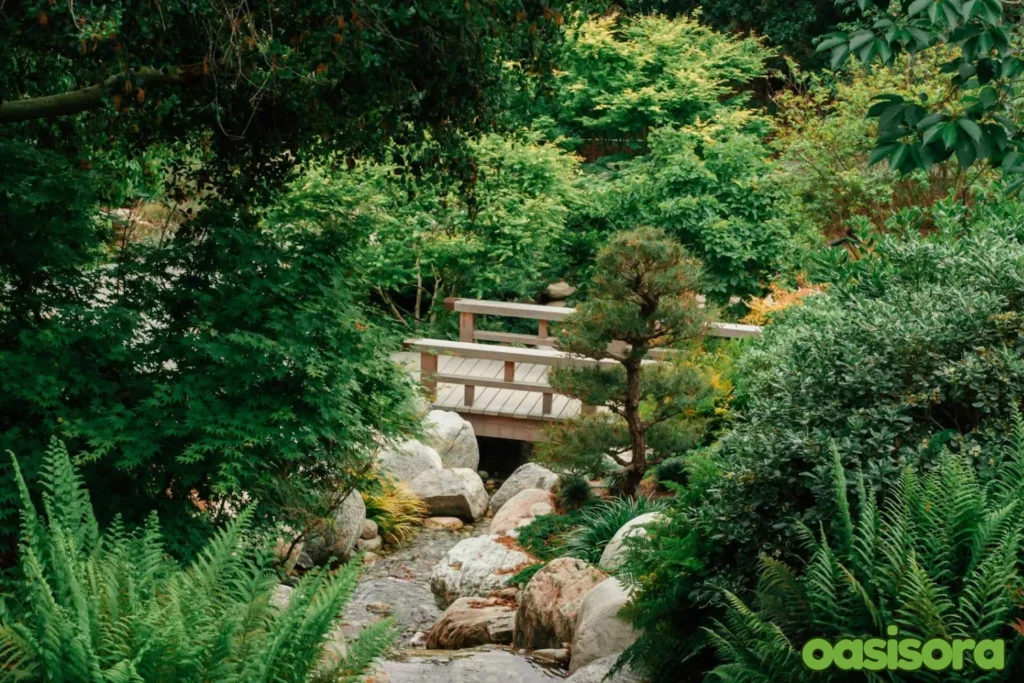
A sustainable Zen garden blends harmony, mindfulness, and eco-conscious design offering both beauty and environmental balance. Creative ways to design a Zen garden that’s gentle on the planet. From natural materials to water-saving techniques, create a peaceful space that truly respects nature.
I used to imagine of traditional Zen gardens in that way. Zen garden principles have been around since the ninth century and haven’t changed much. Their simple designs, thoughtful planting, and careful layouts create a sense of calm. However, most traditional Zen gardens aren’t suitable for many climates and require too much maintenance. So, I adapted Zen garden principles to fit sustainable gardening strategies.
So, whether you live in a rainy or dry area, this post shares sustainable Zen garden ideas that work with your space and schedule. Stay tuned till the end!.
TL; DR
- The Japanese Zen garden ideas can be modified to fit any climate zone.
- Your garden design will depend on your local conditions, including:
- The type of soil you have
- How much sunlight your garden gets
- How much rain your area receives
- For an eco-friendly garden, choose native plants, save water, use green materials, and reuse old ones.
- These strategies can boost local ecosystems by attracting pollinators and offering shelter to wildlife.
18 Essential Elements of a Sustainable Zen Garden
Read the vital elements you should understand before creating a creative eco-friendly Zen garden:
1. Eco-friendly Materials for Pathways & Borders
Hardscaping materials often harm the planet and bad things happen when we use the wrong garden stuff. You should only use local and eco-friendly materials for pathways and borders. They are vital for a sustainable Zen garden.
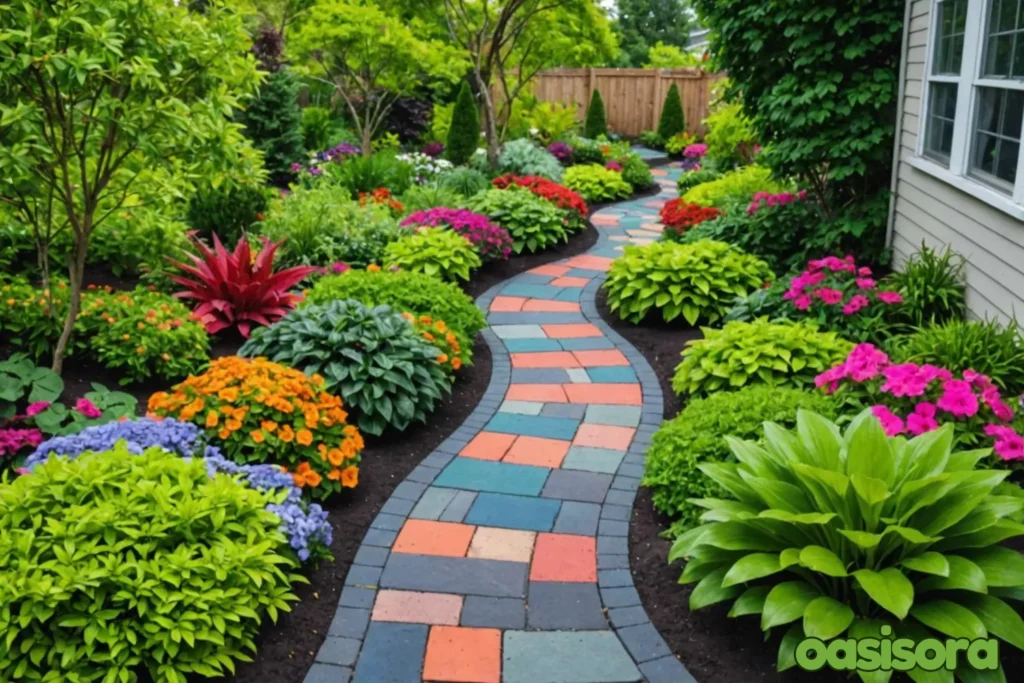
Eco-friendly Materials for Pathways & Borders
Here are some common ideas:
Reclaimed Stone or Bricks:
Old stones or bricks come from old buildings or websites. This is a good choice that adds charm and also helps the Earth.
Permeable Pavers:
Special pavers help water soak in. This stops extra water from flowing away. You should choose the pavers that are made from old or eco-friendly materials.
Certified Wood:
Forest Stewardship Council (FSC) certified wood comes from forests that are taken care of. This wood helps the Earth, people, and the economy. Cedar and redwood are great choices.
Recycled Plastic Lumber:
Additionally, you can also use recycled plastic lumber. It is a strong wood substitute made from old plastic waste that doesn’t rot.
Pro Tip: As you use these materials, prioritize local things to reduce travel pollution, minimize hard surfaces, choose things that last long, and balance hard things with plants and nature.
2. Selecting Drought Tolerant & Native Plants
You can pick plants from your area that don’t need much water. This helps make a sustainable Zen garden that’s healthy too and needs little care.
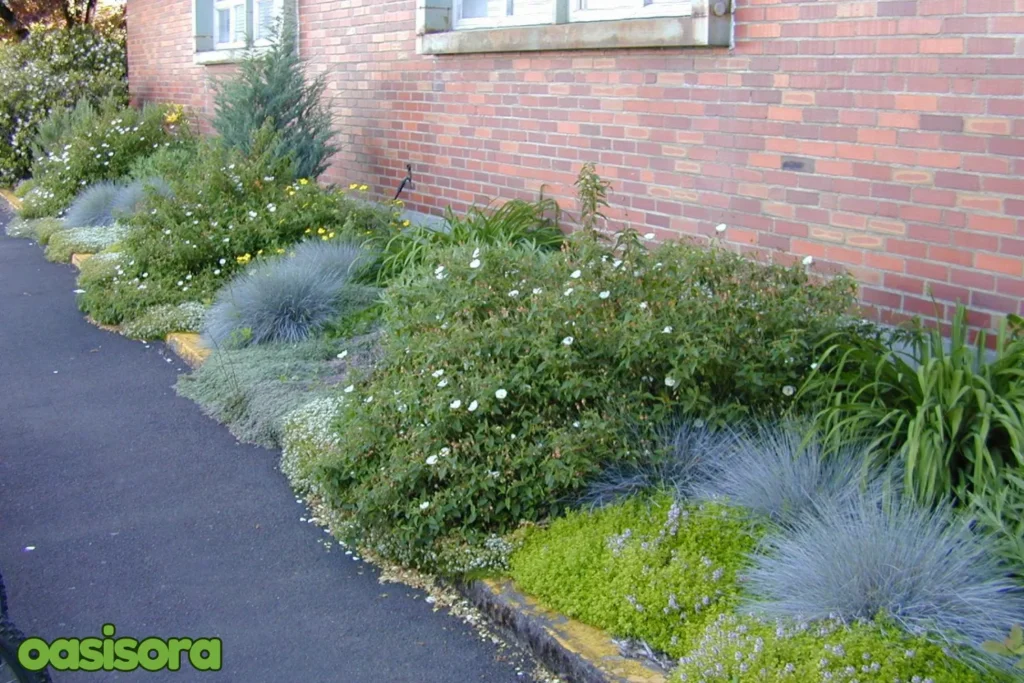
Drought Tolerant & Native Plants
Native Plants:
Do you know that the local plants are versatile and adaptable to your area’s needs and help local animals? So, you should look for plants from your area to find the ones you like.
Succulent Plants:
For a sustainable Zen garden, succulents are perfect since they require little water and come in various sizes and colors, making them an excellent choice for creating a semi-arid or desert-inspired Zen garden.
Ornamental or Japanese Grass:
If you are a lover of Japanese grasses then this option is splendid for you! The ornamental or Japanese grasses don’t need much water and help keep soil in place. They also add movement, sound, and changes with the seasons to the garden.
Xeriscaping Techniques:
Xeriscaping and Japanese Zen gardens use little water. They focus on stones, gravel, and a few plants. This creates a beautiful, low-water landscape.
Pro Tip: Put plants that need the same amount of water together. This helps water them just right and not waste water.
3. Water Conservation Techniques
Using water-saving methods can greatly reduce water use and control rainwater runoff.
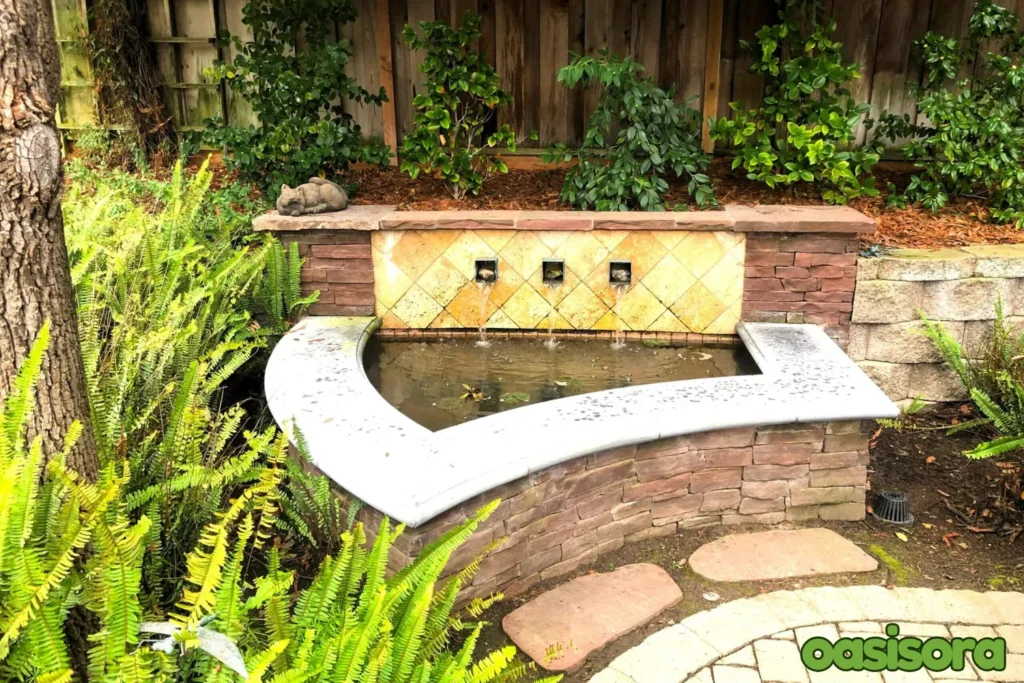
Water Conservation Techniques for Zen garden
Below are some other ideas and concepts:
French Drains:
For a sustainable Zen garden, you can use drained French drains are trenches with pipes and gravel. They divert rainwater away from structures and low points effectively.
Rain Barrels:
Rain barrels collect roof water to use for plants during dry times.
Rain Gardens:
Use the rain gardens for shallow dips with local plants that catch and clean rainwater.
Organic Mulch:
Using organic mulch like bark dust can improve soil health and retain moisture, creating a sustainable foundation for your garden
Swales:
Lastly, swales are shallow channels that slow and direct water, helping rainwater soak into the ground for better irrigation.
Pro Tip: Put your rain garden in a yard’s low spot to best catch and use rainwater runoff.
4. Upcycled and Repurposed Decor
If you are eco-conscious, recycling is the foremost choice for you!.
You can use old items in new ways to add character to your Zen garden and reduce waste. This doesn’t mean making it look old and worn, but rather creative and unique.
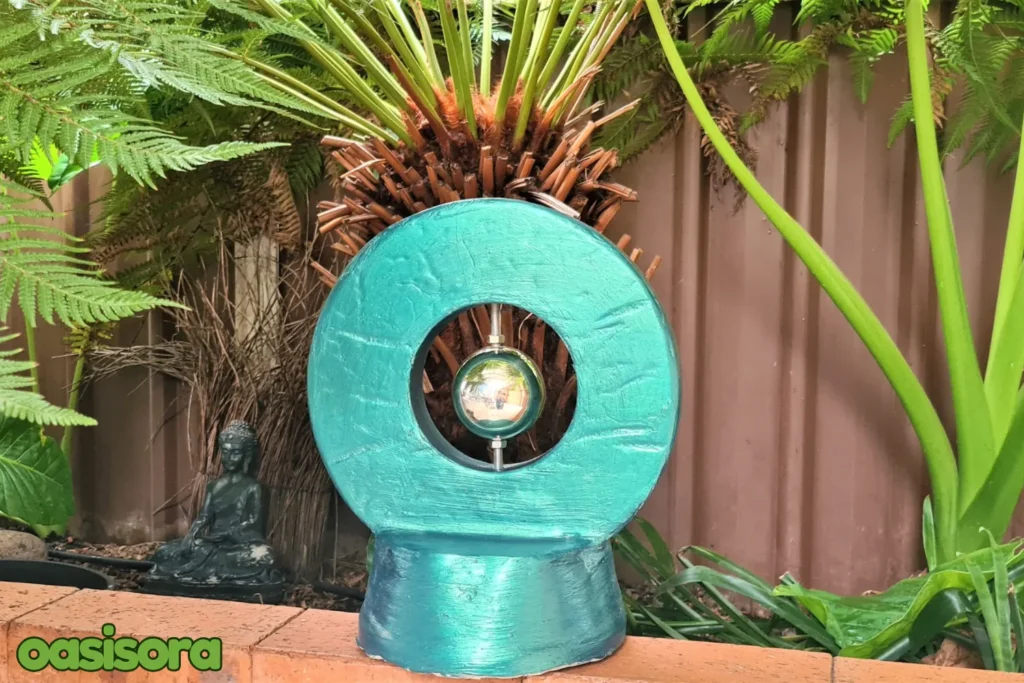
Upcycled and Repurposed Decor Plants
Here are some ideas:
Thrifted or Concrete Statues:
Find authentic Zen garden statues second-hand on Craigslist, Facebook Marketplace, or local thrift stores, reducing waste and adding unique character.
Old Ladder:
Use the old ladders for plant stands or vertical gardens, giving new life to an old item.
Salvaged Wood:
Unique seats, walkways, and ornamental elements can be created from reclaimed wood.
Vintage Pottery:
Old pottery can be reused for mosaic art or as drainage for potted plants, reducing waste and adding charm.
Pro Tip: When upcycling for your sustainable Zen garden, keep a consistent look by using clean lines, a limited color palette, and cohesive materials to create a peaceful atmosphere.
Sustainable Maintenance Practices for Zen Gardens
Here are some eco-friendly practices to make an ideal sustainable Zen garden for you:
5. Organic Pest Control Methods
Natural pest control keeps your garden healthy, chemical-free, and safe for wildlife. Here are some ideas:

Organic Pest Control Methods
Companion Planting:
Plant marigolds, lavender, or basil to naturally repel pests.
Advantageous Insects:
Did you know that ladybirds can eat pesky-harming insects? Isn’t it captivating? Ladybugs, lacewings, and praying mantises are examples of beneficial insects that naturally regulate pest populations. Let them do their work in your garden!
Neem Oil:
Use neem oil to naturally control garden pests as it’s a natural antiseptic.
Diatomaceous Earth:
Sprinkle your plants with diatomaceous earth to create a natural, non-toxic barrier that will keep crawling insects away.
Pro Tip: Catch pests early! To avoid diseases, examine your plants frequently and take action as soon as you see any problems.
6. Composting & Natural Fertilization Techniques
Composting and natural fertilizers make soil healthier and reduce waste, creating a better garden. Here is a good idea for this concept that you can follow in your sustainable Zen garden:
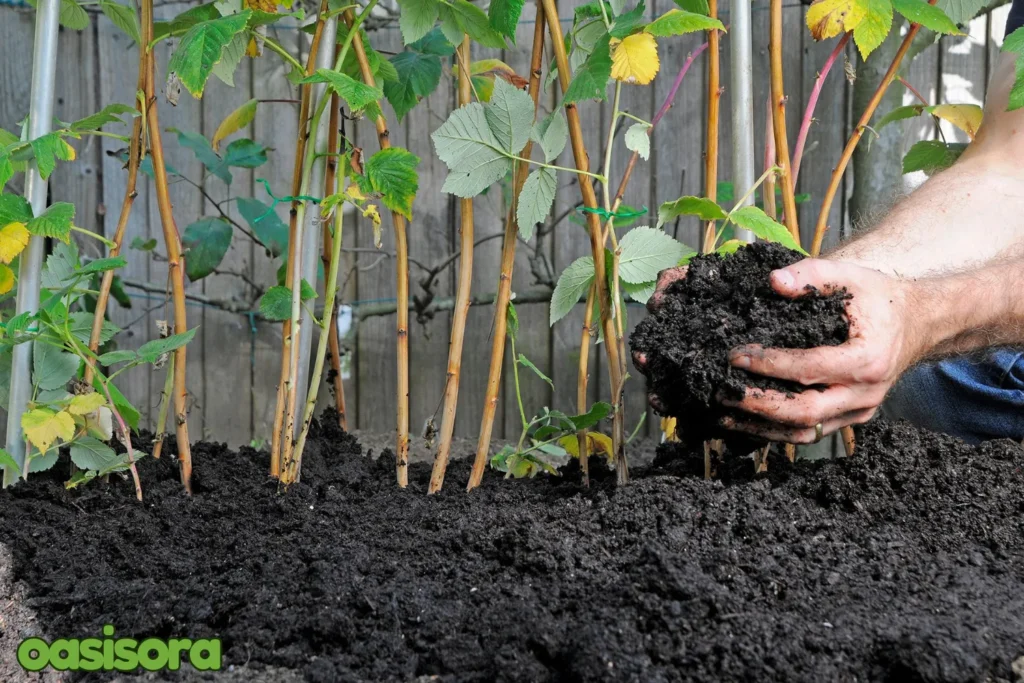
Composting & Natural Fertilization Techniques
Compost Bins:
Hey! Don’t waste fruit and vegetable peels, please! They are precious and excellent for your plants. Use the compost bins to create healthy soil from yard trash and kitchen scraps.
Pro Tip: Mix food scraps (“green”) and dry leaves (“brown”) with water to create perfect compost.
7. Water-efficient Irrigation Systems
Absolutely! Where there are plants, there is a need for the water. If your garden irrigation system saves water and is environmentally friendly, isn’t that a wonderful thing?
In order to preserve your plants and save water, you should use an irrigation system that uses less water.
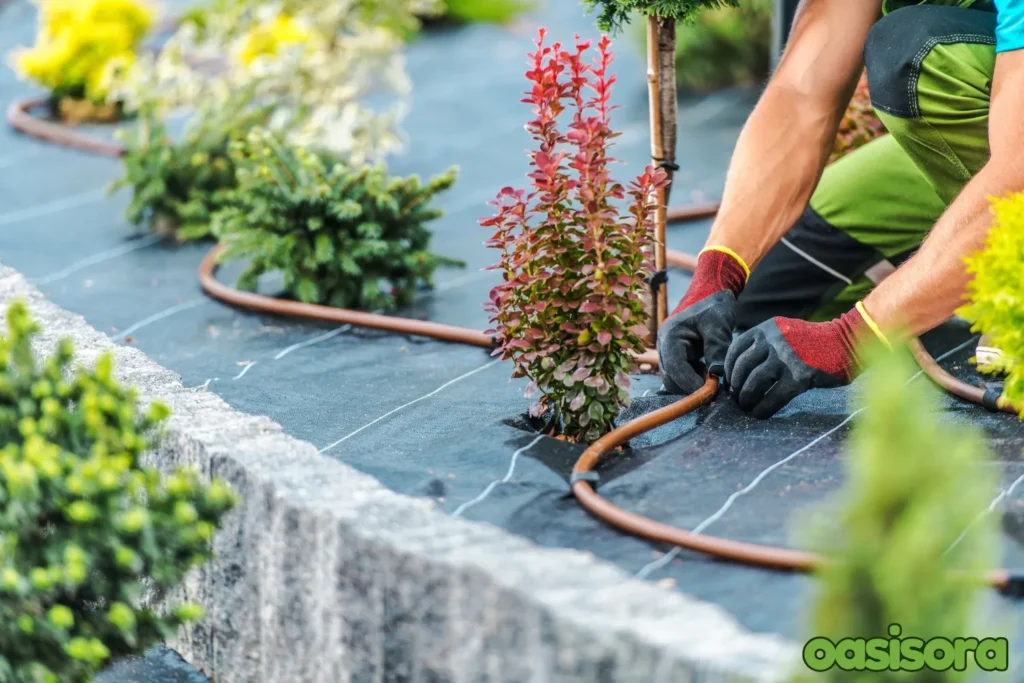
Water-efficient Irrigation Systems
Here I’ll suggest some ideas:
Drip Irrigation System:
Install the drip irrigation system in your sustainable Zen garden that gives water right to the roots, reducing waste.
Use of Smart Controllers:
You can insert smart controllers in your garden to automatically adjust watering schedules based on the weather. Isn’t it good? So, try to use this idea too.
Soaker Hoses:
Soaker hoses are special hoses that slowly release water along plant beds.
Rain Barrels:
Collect rainwater in the barrels for a free water source for your plants.
Pro Tip: Try to water early in the morning or late in the evening to lessen water loss through evaporation.
8. Low-impact Tools & Equipment
By using eco-friendly tools, you can maintain the serene setting of your garden while reducing its carbon imprint.
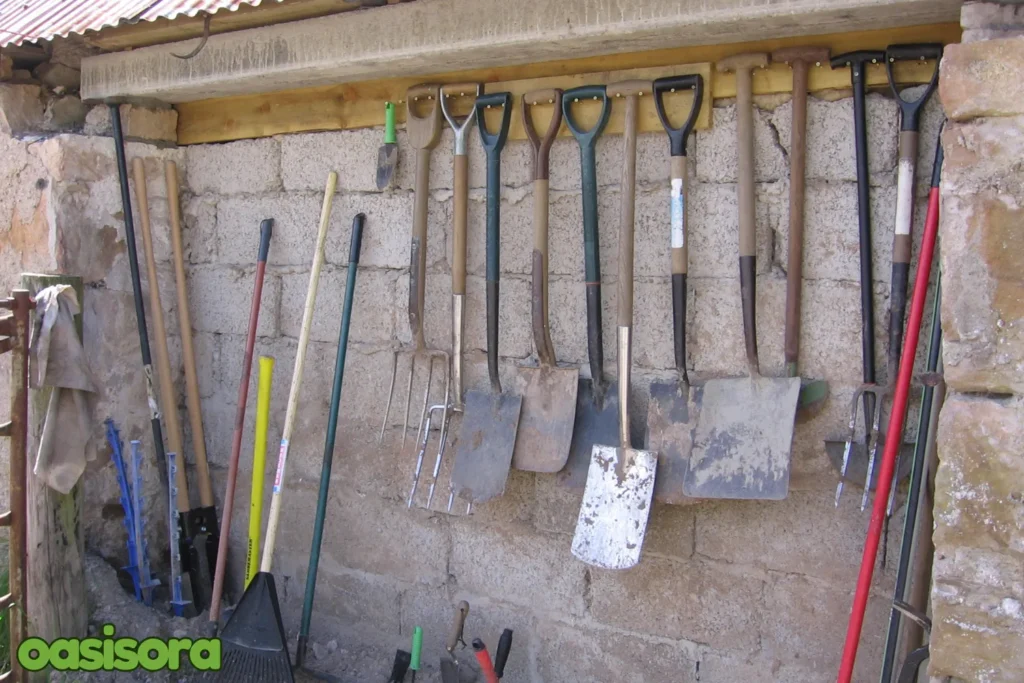
Low-impact Tools & Equipment
Here are some suggestions for gardening tools:
Manual Tools:
You can make use of traditional instruments i.e. rakes, pruning shears, and push mowers. Surprisingly, they are environmentally friendly.
Electric Power Tools:
Compared to gas-powered products, electric lawnmowers and hedge trimmers are more environmentally friendly.
Solar Lighting:
It’s the era of solar! Why not use it in your sustainable Zen garden? Solar-powered lights and water pumps work without using electricity from the grid.
Sustainable Plant Stakes:
Use eco-friendly materials such as bamboo stakes or natural twine for plant support.
Pro Tip: Take care of your yard tools to keep them in good shape and to make them last longer and work better.
9. Rake the Sand or Gravel
Raking the sand or gravel in your sustainable Zen garden is like a form of therapy. You can enjoy creating patterns and designs with the rake. Additionally, it’s an excellent way to unwind and relax. A special rake design can make your yard unique and alluring. It looks like water ripples or natural forms. You must try it. It’s cool! You relax from the daily tensions of life with this meditative practice.
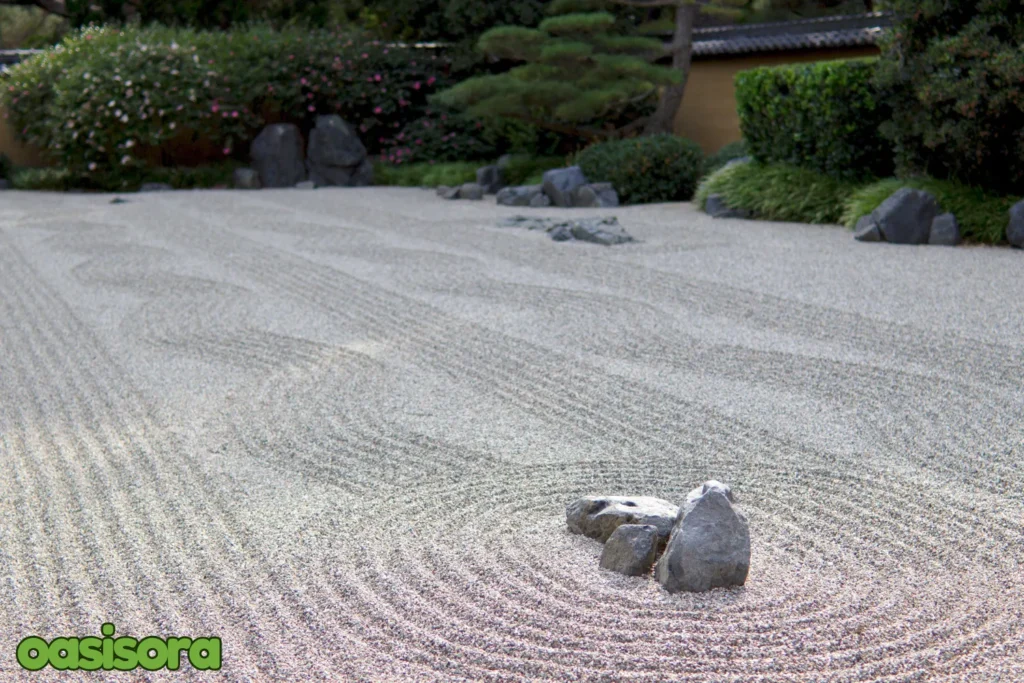
Rake the Sand or Gravel
Here’s how to rake sand or gravel:
Choose the right rake
You can use a wide-toothed wooden rake to create patterns in your yard’s sand or gravel. This technique is perfect for Japanese-style dry gardens.
Prepare the surface
Ensure the gravel or sand is clean and level.
Create patterns
Begin with basic patterns, such as straight lines or circular motions around stones.
Practice and refine
With practice, you can create more complex and nuanced designs.
Choosing the Right Material
Fine sand doesn’t hold patterns well. Coarser materials, such as crushed granite or fine gravel, work better.
10. Remove Debris
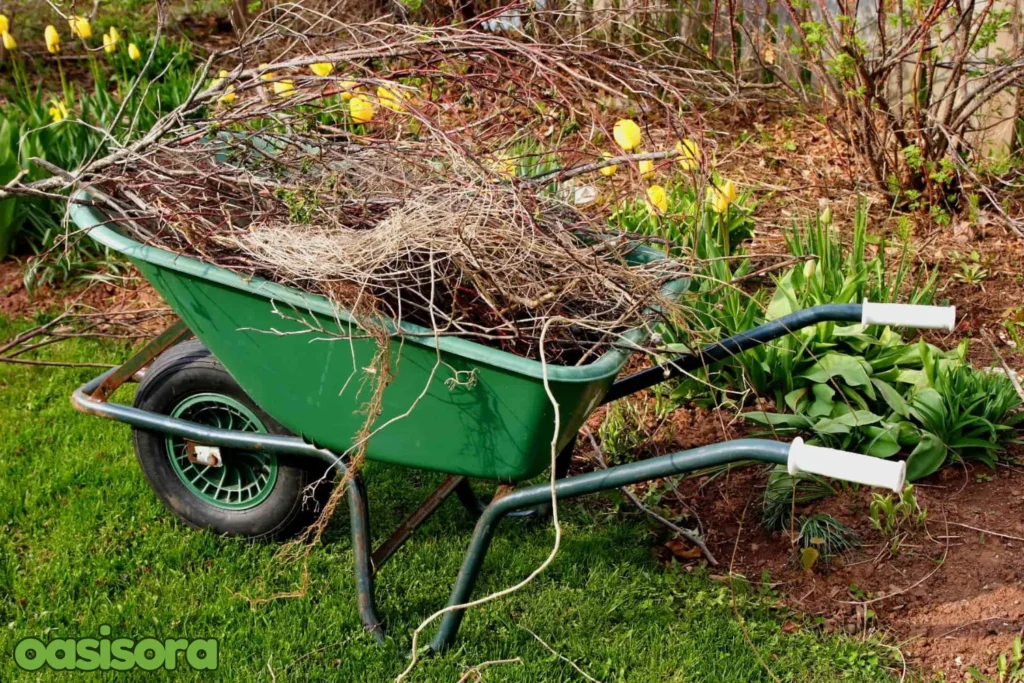
Debris removal
To create a sustainable Zen garden, you must remove debris from it. To do this, you must evaluate your yard’s condition and select ideal equipment. You may need larger equipment or expert assistance for more difficult tasks. You can take the following actions to clear your yard of debris:
- Check the area and identify the debris.
- You can utilize tools such as brooms, rakes, and gloves.
- Sweep or rake up loose debris.
- Use a dustpan for smaller particles.
- Use strong tools for larger items and move them to a designated area.
- You can hire an expert for risky debris.
- Follow local rules for disposing of waste.
11. Weed Control

Weed control
Weed control refers to preventing unwanted plants from growing. You can do this by:
- Pulling them out (mechanical control)
- Changing how you manage your land (cultural control)
- Using chemicals (chemical control)
- Using natural enemies (biological control)
Some specific techniques include:
- Mowing or cutting weeds
- Hand weeding
- Mulching
- Using heat to kill weeds
Weed control is vital for a sustainable Zen garden for these reasons:
Less Competition for Plants
Weeds compete with good plants for nutrients, sunlight, and water. This can hurt plant growth and crops.
Prevention of Seed Production
Additionally, the weeds produce numerous seeds, which can spread rapidly and cause further problems.
Control Bad Weeds
Certain weeds are extremely invasive and difficult to manage. To keep them under control, they require extra care.
Biodiversity in Sustainable Zen Gardens
Now, let’s talk about something caring! That’s love for animals:
12. Attracting Pollinators & Beneficial Insects
Do you know that attracting helpful bugs to your garden supports the environment and keeps your garden healthy?
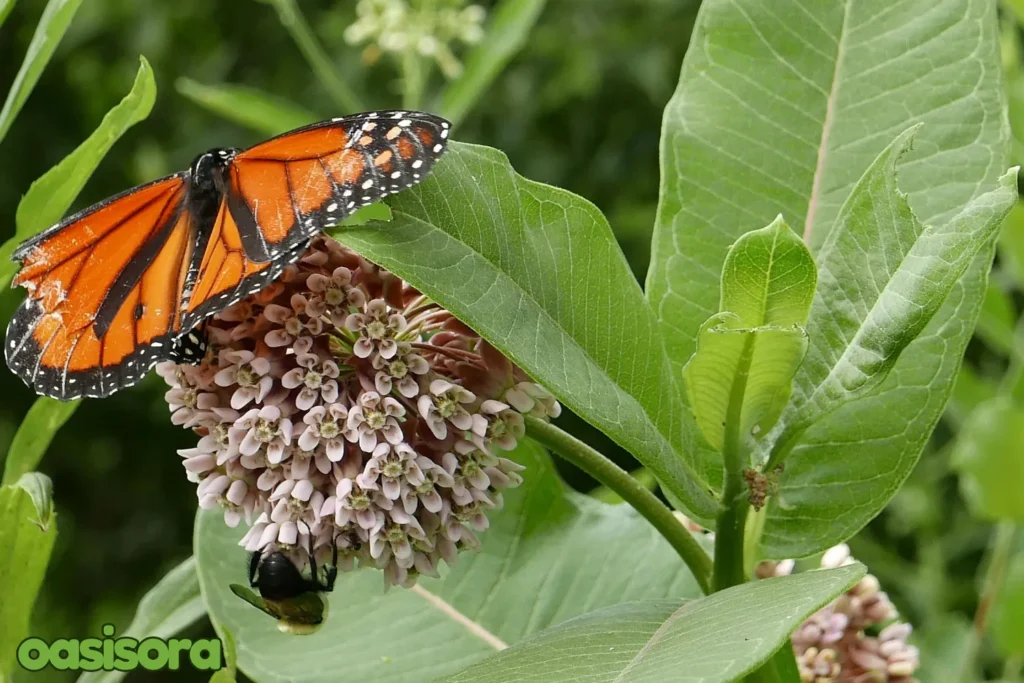
Attracting Pollinators & Beneficial Insects
Here are some ideas for this:
Pollinator-friendly plants:
To draw bees and butterflies, you can also plant pollinator-friendly plants like sunflowers, lavender, and echinacea.
Insect Hotels Use:
Insect hotels, like tree stumps or deadwood, offer a cozy home for helpful insects.
Drinking Options for Animals:
Hey folks! Please take care of the animals and birds around you! Provide a shallow water source, ideally with running water, to quench the thirst of animals and insects while keeping mosquitoes at bay.
Flowering Plants:
Local pollinators, such as bees and butterflies, are drawn to native flowers so plant them too.
Pro Tip: To provide pollinators with food throughout the season, plant a variety of flowers that bloom at different times.
13. Creating Habitats for Local Wildlife
Love wilds! Then, adding wildlife-friendly features turns your sustainable Zen garden into a vibrant mini-ecosystem.
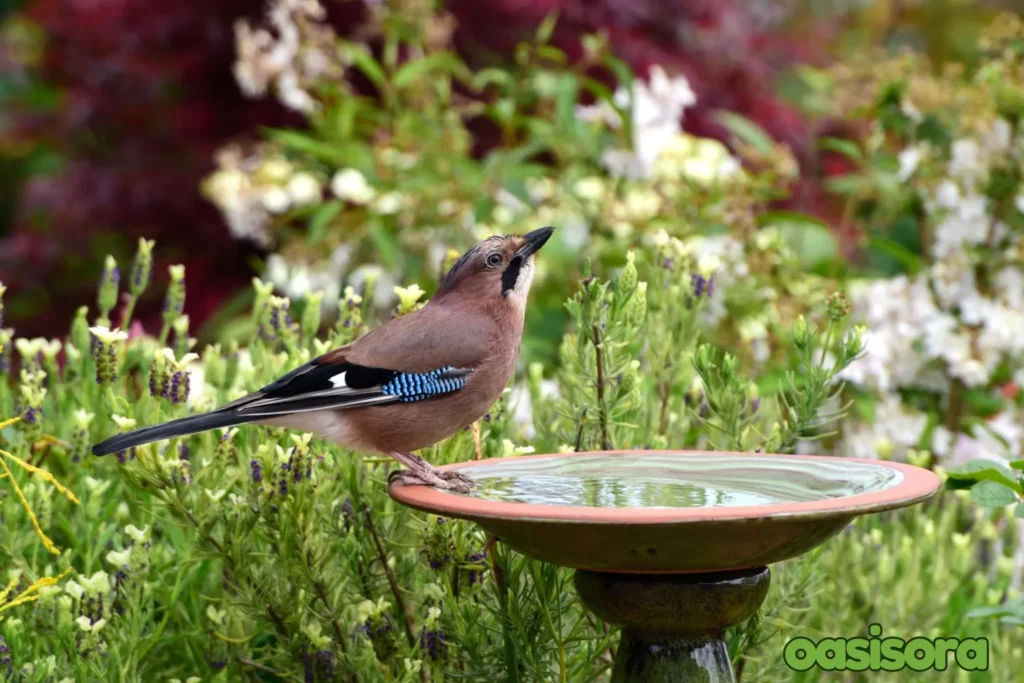
Habitats for Local Wildlife
Here are some creative ideas that we have discussed above:
- Using plant pollinator-friendly flowers.
- Building insect hotels using natural materials like tree stumps or deadwood.
- Provide shallow water sources, ideally with running water to prevent mosquito breeding.
- Choosing native flowering plants to attract local pollinators.
Add these elements to create a thriving Zen garden that helps local animals.
14. Incorporating Edible Plants & Herbs
You can also add edible plants and herbs to your sustainable Zen garden to make it aesthetically appealing and useful too. This can create a cozy space that feeds both your body and soul.
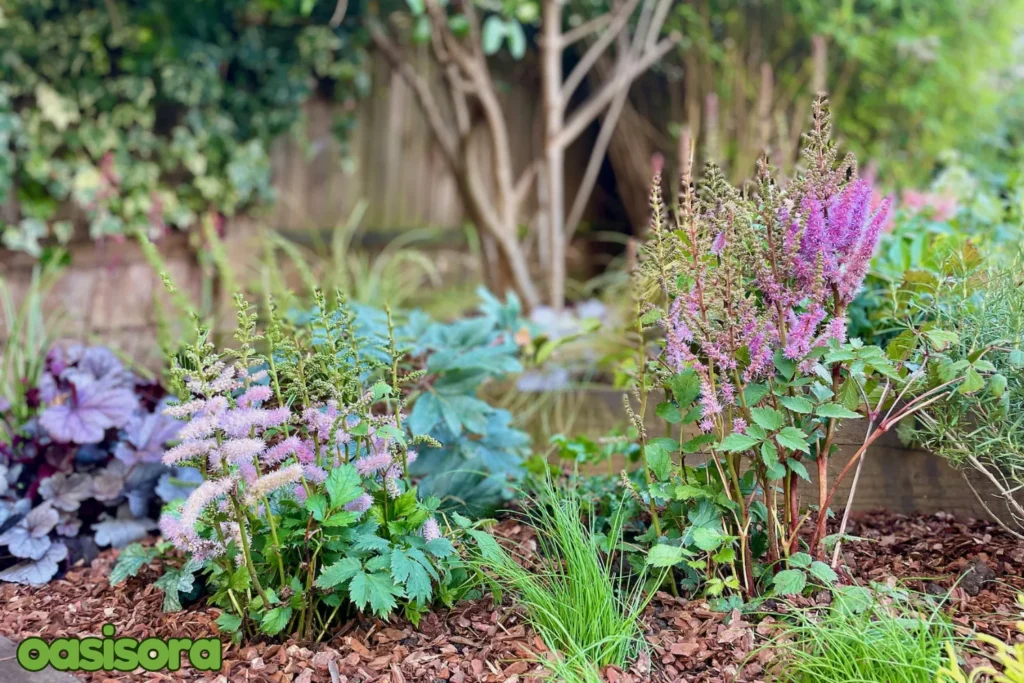
Edible plants and herbs to sustainable Zen garden
For this, I’ll suggest these wholesome easy ideas:
Groundcovers of Herbs:
Herbs like thyme make great groundcovers, similar to moss or Japanese Mondo grass, in your Zen garden.
Fruit Trees:
This is my most lovely idea! Fruits from your yard! Yep! You can include fruit trees like crabapple and cherry in your sustainable Zen garden for attractive seasonal blossoms and fruits.
Edible Flowers:
Nasturtiums, pansies, and marigolds add colorful, edible flowers that delight both sight and taste.
Tea:
Hey! Listen, tea lovers! Add chamomile, mint, and lemon balm to your tea garden. This will allow you to pick fresh herbs for soothing homemade teas.
Vegetable Plant zones:
If you have a small yard, vertical gardens on trellises or wall-mounted planters are perfect for you. This allows you to grow compact veggies like cherry tomatoes or climbing beans and enjoy a beautiful and productive garden.
Pro Tip: Select plants with stunning leaves or flowers, like rainbow chard or purple basil, to keep your sustainable Zen garden visually appealing while also providing a tasty harvest.
15. Balancing Aesthetics & Ecosystem Support
A well-designed Zen garden is a beautiful and eco-friendly way to bring nature to your outdoor space.
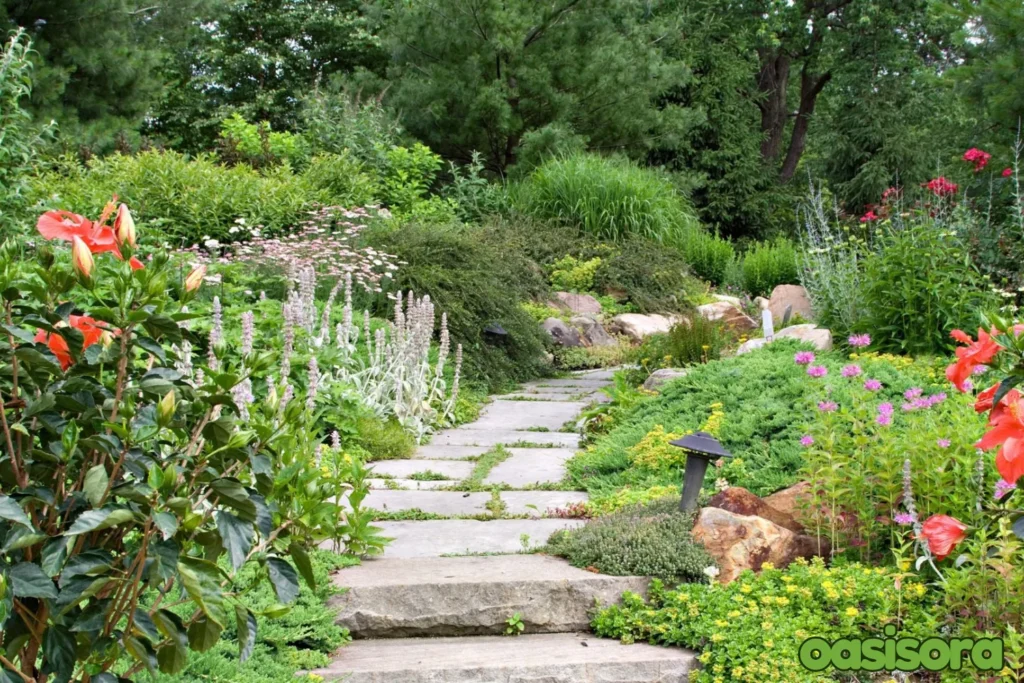
Balancing Aesthetics & Ecosystem
Here are some ideas for this:
Layered Planting:
Combine the various trees, shrubs, and ground cover to create a natural and multi-level habitat.
Natural Stone Features:
Rocks and boulders add aesthetic value and microhabitats for creatures.
Embracing Wildness:
Allowing selected areas to grow freely creates a naturalistic look that supports biodiversity.
Low Maintenance:
Less upkeep means less disturbance to plants, insects, and animals.
Water Features:
Small ponds and streams serve as focal points and water sources for wildlife.
Pro Tip: Use smooth curves and organic shapes to evoke natural landscapes and foster a peaceful, Zen ambiance.
Energy Efficiency in Zen Garden Design
Let’s chat about the efficient energy supply of your garden:
16. Solar-powered Lighting Options
Incorporate solar lights to enhance your sustainable Zen garden’s ambiance with eco-friendly energy.
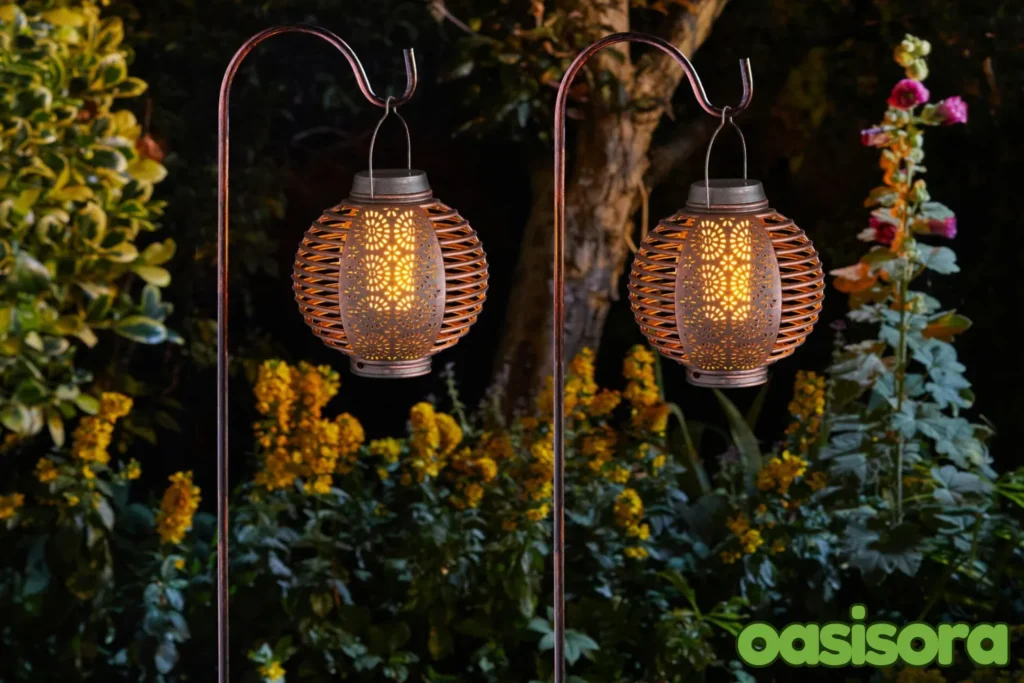
Solar-powered Lighting
Here are some types of solar lights:
Solar Path Lights:
Line walkways for safe navigation and subtle illumination.
Floating Solar Lights:
Add magic to water features at night.
Solar Lanterns:
Hang from trees or structures for soft ambient lighting.
Solar Spotlights:
Highlight key garden features or sculptures at night.
Pro Tip: For best results, position solar panels in spots that get plenty of direct sunlight, ensuring they charge fully for bright nighttime illumination.
17. Wind Chimes & Water Features
Add eco-friendly wind chimes and renewable energy-powered water features for calming sounds in your Zen garden.
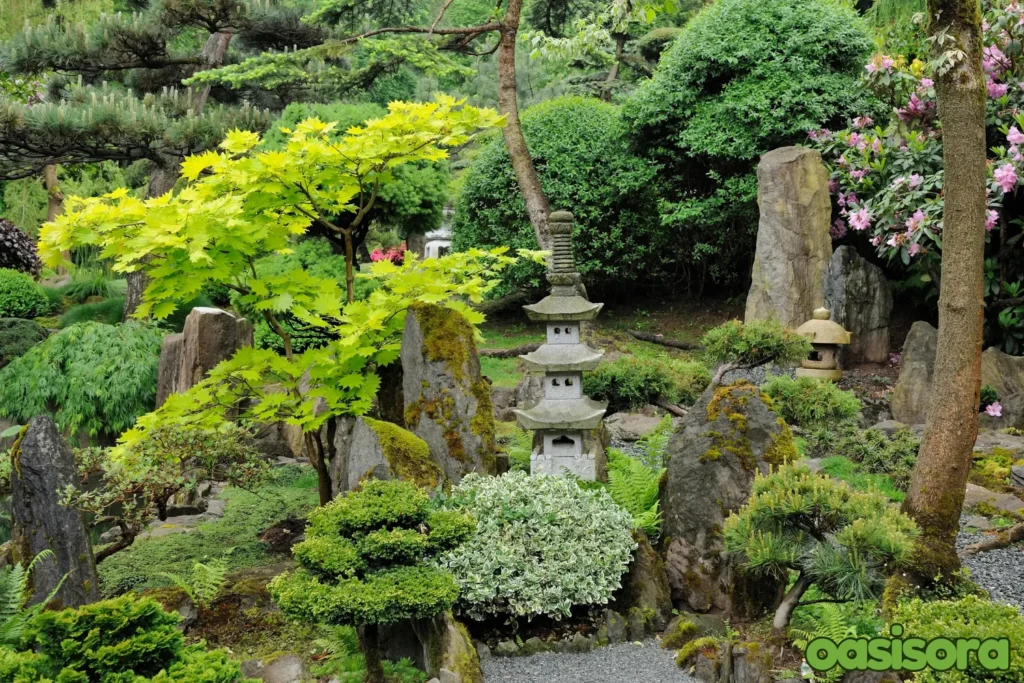
Wind Chimes & Water Features for Zen garden
Here are some ideas:
Wind Chimes:
Wind chimes make a soft, musical sound in the wind. Select the ones made from organic or natural materials like wood.
Solar Fountains:
Solar fountains bring calming water sounds without extra energy costs.
Pro Tip: Place wind chimes and water features near seating or meditation areas to fully enjoy their soothing sounds.
18. Passive Heating & Cooling With Strategic Planting
You may reduce the need for artificial heating or cooling by using smart planting in your sustainable Zen garden to naturally manage the temperature.
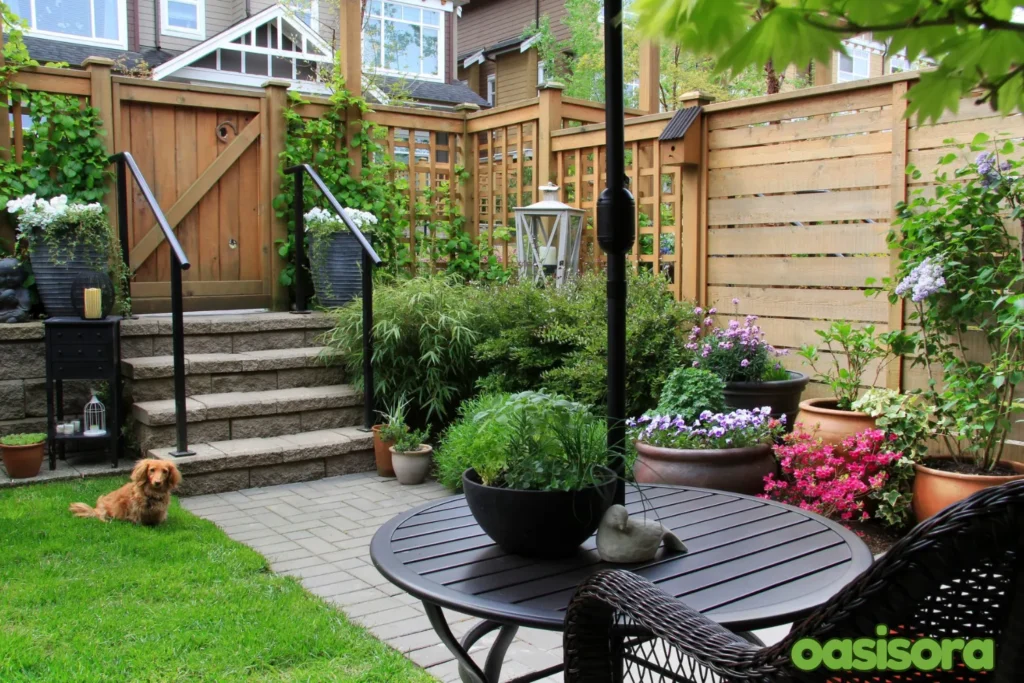
Heating & Cooling With Strategic Planting for Zen garden
For this, here are some ideas:
Summer Shade:
You should plant deciduous trees on the south and west sides for a proper summer shade.
Wind Protection:
Evergreen windbreaks can shield your plants from prevailing winds.
Insulation:
Insert green walls or vertical gardens on sun-exposed walls to insulate and cool.
Cooling Groundcovers:
You should use Low-growing, drought-resistant groundcovers to reduce heat reflection.
Pro Tip: When planning, think ahead to the mature size of plants to ensure they’ll provide the desired heating and cooling benefits in the long run.
Final Thoughts
That’s all, my folks! Creating a sustainable Zen garden is all about harmony with nature and your surroundings.
It’s excellent for any space, big or small! You can create a calm haven that respects the earth by fusing eco-friendly methods with classic ideas.
Use repurposed materials, native flora, and the calming sounds of the natural world to create a tranquil haven.
So, get ready to rake in the calm, grow a greener future, and connect with the natural world!
Zen out, sustainably, and happy gardening!
FAQs
1. What is the concept of a Zen garden?
Zen gardens are calm, comfortable areas that encourage rest, awareness, and a sense of harmony in the natural world.
2. How do I create a Zen garden?
You can combine plants, stones, and water to create a peaceful space.
